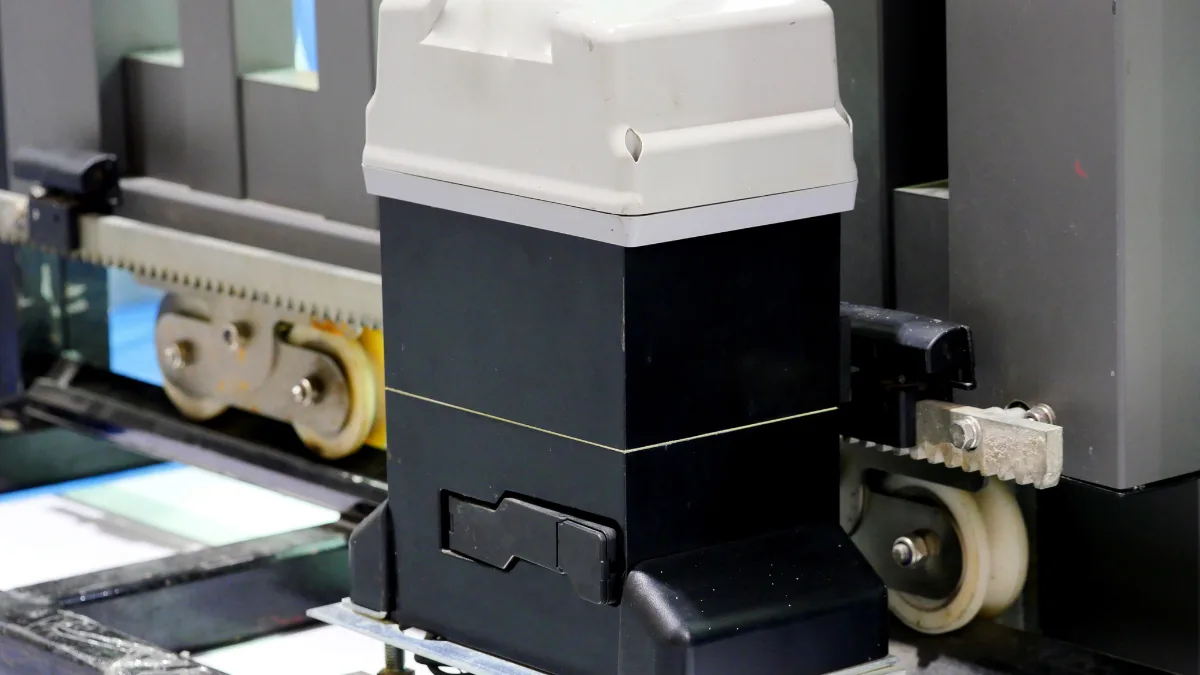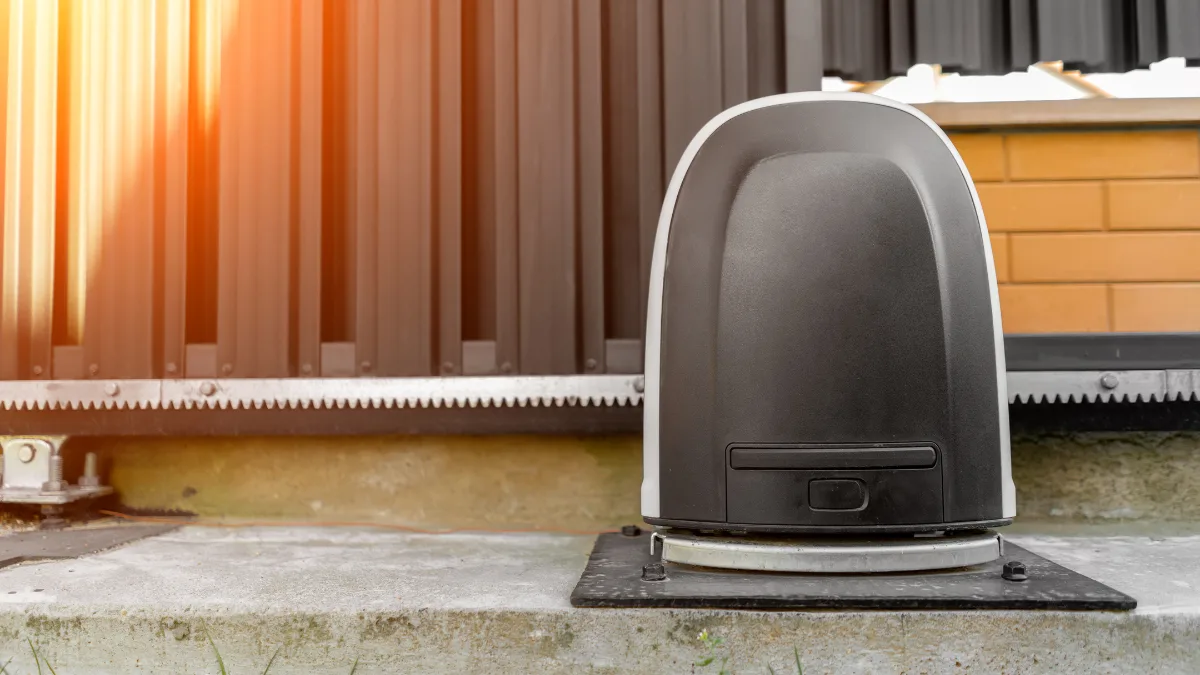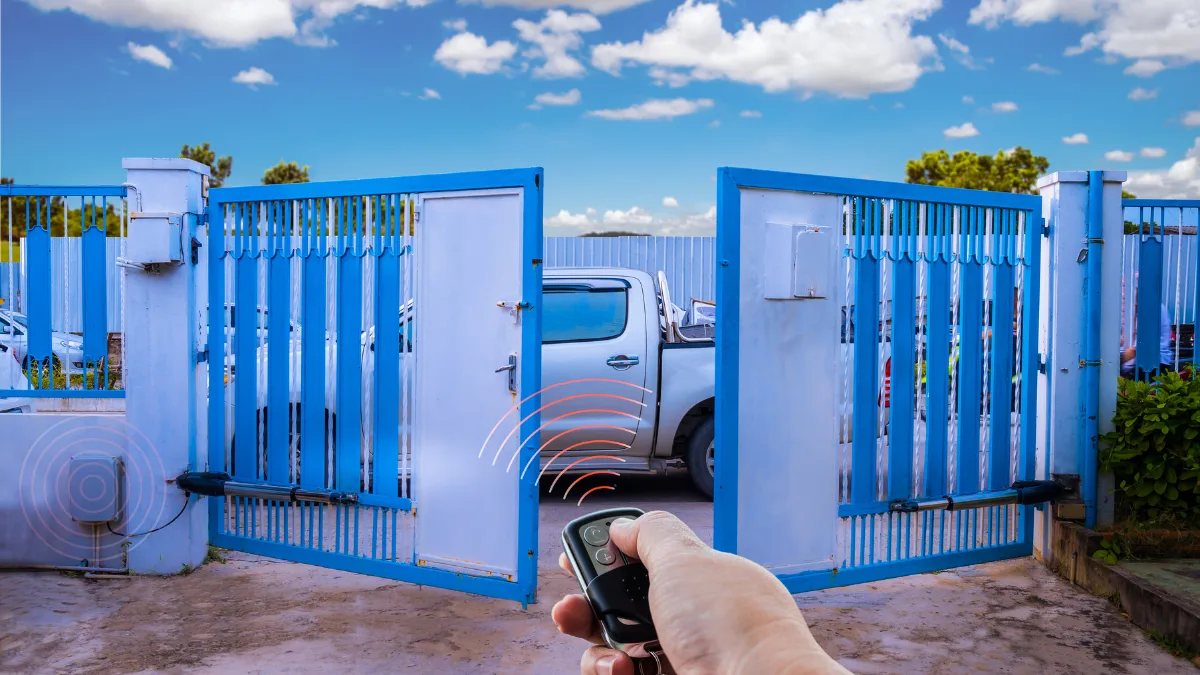A smart gate opener is an electronic device that is part of a smart home appliance, supporting smart homes to create a futuristic home.
Your smart home will be more complete with the presence of a smart gate opener that provides convenience with automated control and connectivity with other smart devices.
This article will provide information about smart gate openers, starting from their definition, how they work, their features, and their regulations in Indonesia.
What is a Smart Gate Opener?

A smart gate opener is an electronic device used to automatically open and close gates in homes, offices, or industrial areas.
This device can be connected to a WiFi network so that it can be controlled via a mobile app or special remote, allowing for remote control to open and close the gate.
Advanced features are also embedded in this device to support device automation, such as scheduling and integration with other smart devices.
How Does it Work?
A smart gate opener works to control the opening and closing of gates automatically using wireless technology. Here is how it works in detail:
- Control via the app: Users press the control to open or close the gate via an app on their smartphone or a remote control.
- Signal sent: A radio wave signal is sent to the receiver on the gate control panel.
- Receiver processes the signal: The gate control panel detects the signal and translates the command to open or close the gate.
- Motor is activated: The motor moves based on the command from the control panel.
Some devices are also equipped with security sensors and access control. Sensors operate based on the presence of objects detected in the gate area. Access control works using RFID cards, QR code scanning, or vehicle numbers.
The Features

Smart gate opener has many features to support the control of the gate. Here are some of the main features of the device:
1. Control via app and remote
One of the main features of a smart gate opener is that it can be controlled via an app and a remote. Control via the app allows users to open and close the gate remotely. Meanwhile, the built-in remote usually has a shorter range of approximately 50 meters from the gate.
2. Safety sensor
Some smart gate opener models are equipped with safety sensors to detect obstructions. So the gate will stop automatically when there are still objects blocking it, so that the gate will not hit objects that have not yet passed the safe limit of the gate to close again.
3. Schedule settings
The smart gate opener app has a schedule setting feature to open and close automatically. This feature allows users to set specific times when the gate should be opened or closed.
4. Integration with smart home systems
Smart gate openers are designed to integrate with other smart home systems. This allows users to control the gate with voice commands or enable broader smart home automation.
5. Sharing access
Using a smart gate opener allows you to share access with family members. The app can be linked to multiple users, allowing control by several people who have access.
Regulation in Indonesia

The smart gate opener uses technologies such as Bluetooth, Zigbee, or WiFi that operate within a specific frequency spectrum. In Indonesia, any Bluetooth, Zigbee, or WiFi-based wireless device is required to have a DJID (Directorate General of Digital Infrastructure) under the Ministry of Communication and Digital (KOMDIGI).
Smart gate opener regulation is based on KEPMEN No. 260 Tahun 2024 for Bluetooth and Zigbee, and KEPMEN No. 12 Tahun 2025 for WiFi, which requires all radio frequency-based devices to meet specific technical standards before being sold in the country.
The DJID certification ensures that the product meets government safety and quality regulations and does not interfere with other communication devices. The certification process involves technical testing, such as frequency adjustments, safety checks, and compatibility with the surrounding environment.
Once the tests are completed, products that pass are listed in a Test Result Report, which confirms that the product is safe and ready for sale in Indonesia. This report reassures customers that the product meets technical standards and is secure.
For companies wanting to sell smart gate opener appliances in Indonesia, Type Approval Certification Services for ICT Products are available to assist with this process. This service includes preparing technical and legal documents, conducting required testing, ensuring compliance with regulations, helping companies streamline the certification process, and giving consumers confidence in certified products. [UN]

